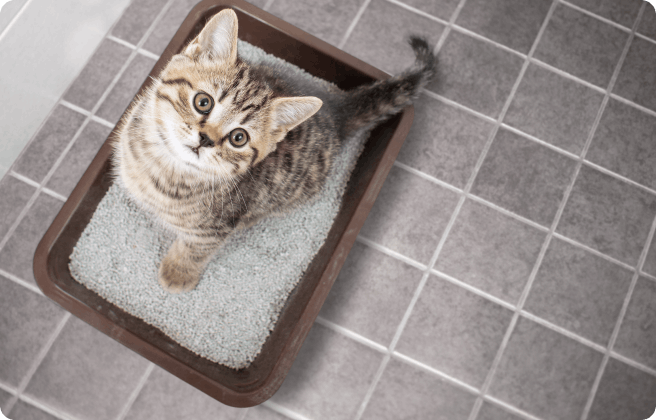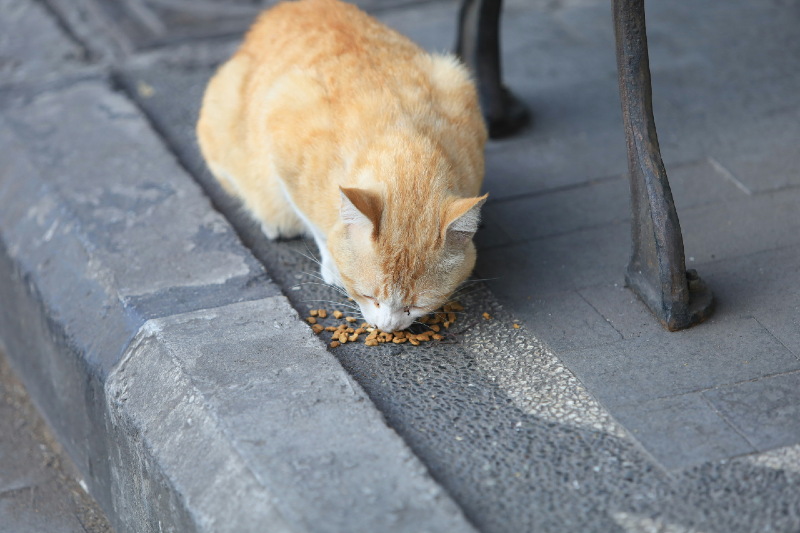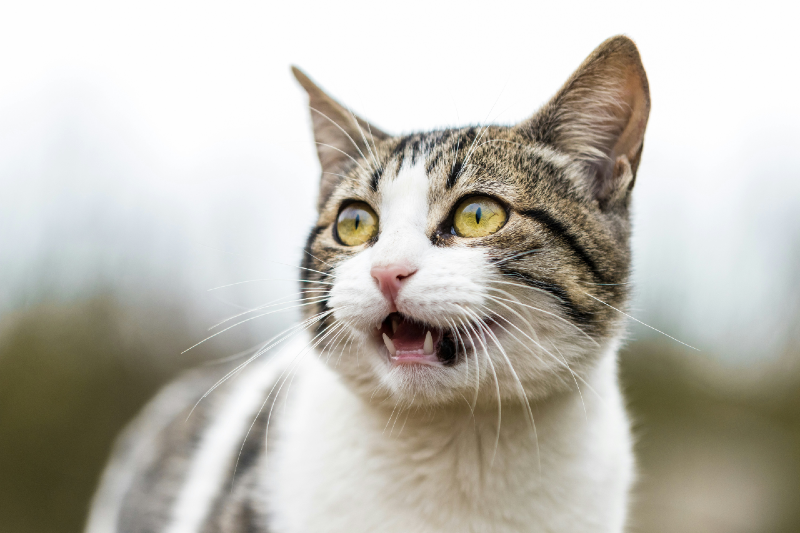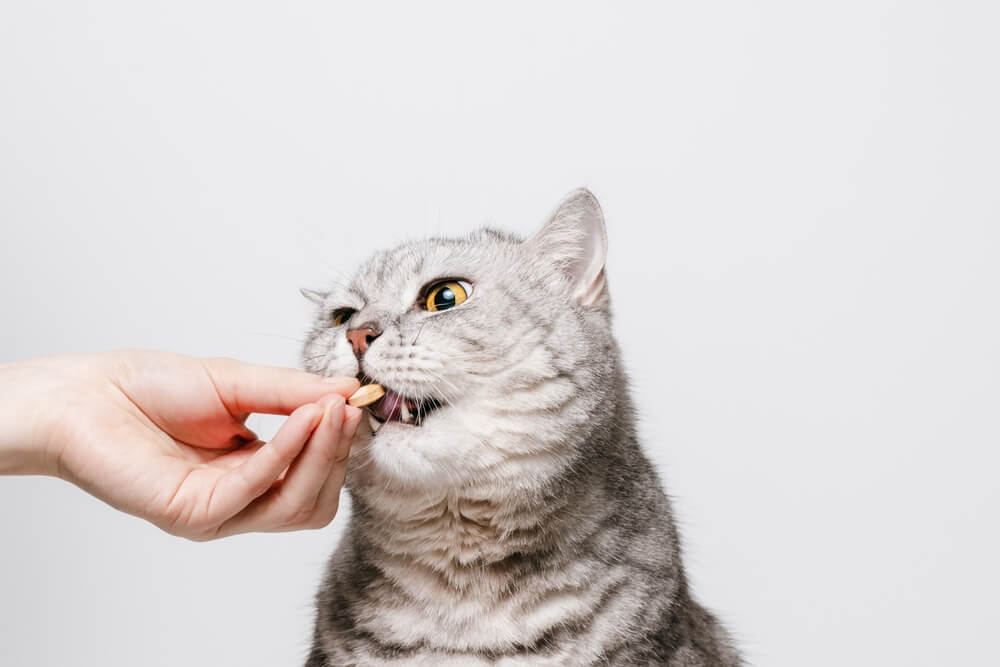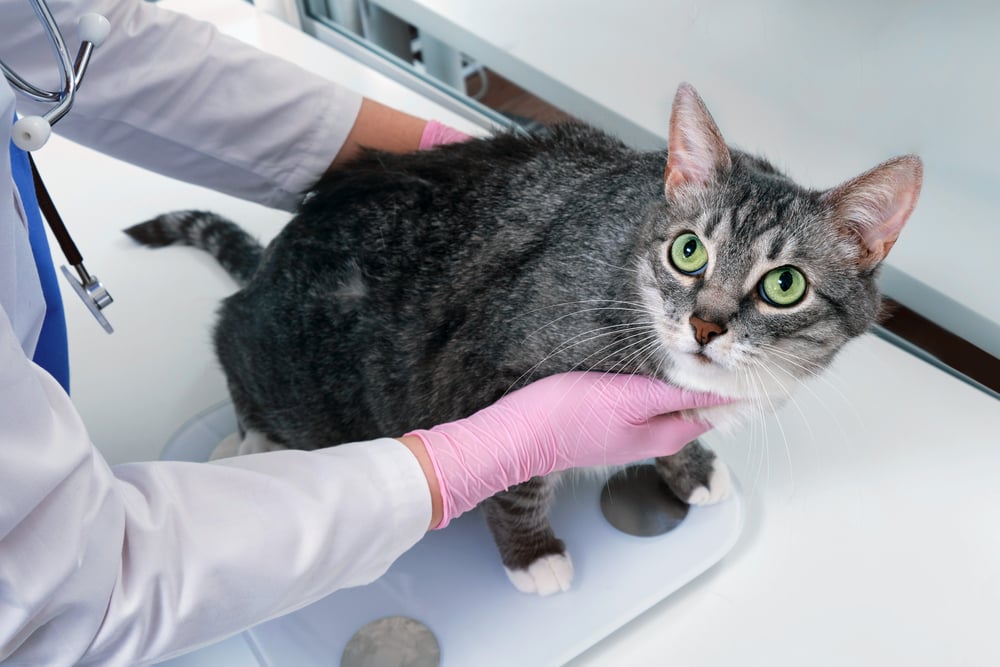
Being aware of the signs of heartworm and what to do if you spot the symptoms is key to helping your cat in the unlikely event that they become infected with heartworm parasites.
You may have heard of the disease in relation to dogs, as they are more susceptible to it than cats. But felines aren’t immune — however, they aren’t as easy a host for heartworms to live in and grow inside, and most worms do not fully develop to adult stage, as well as being smaller in size and number than in dogs.
As a result, the mosquitoes that transmit heartworm disease are less attracted to cats than dogs. A study found that in a specific area of Italy where there was an outbreak of heartworm, the rates were 29% in dogs and 4.7% in cats1.
But as with all diseases that affect cats, it’s important as a cat parent to be aware of what diseases affect the animal, and the signs that your cat might have heartworm disease so you know what to do if that’s the case.
What is heartworm disease?
Heartworm disease is caused by a parasite called Dirofilaria immitis that’s spread by mosquitoes.
The lifecycle of a heartworm is complex: essentially, a mosquito that bites a dog or cat with heartworm will take on some of the microfilaria (the larval form of Dirofilaria immitis), which transform into larvae over the next two weeks. These are then passed onto a cat in the mosquito’s saliva when the insect bites it.
The larvae continue to transform in the cat’s tissue before entering the cat’s bloodstream and growing into adult heartworms in the pulmonary artery over the next 7-8 months.
Cats can show signs of infection when the worms arrive in the pulmonary artery, which can sometimes cause breathing problems due to the cat’s inflammatory response to the worms, as many are dead or dying.
Warm areas of the U.S. — in particular, the southern states — see higher rates of heartworm, due to the increased prevalence of mosquitoes. Outdoor cats are at an elevated risk, but indoor cats can also be at risk if a mosquito enters the house.
As well as having fewer heartworms than dogs, if your cat has heartworms, only around 20% will make it to adulthood. Cats also have a higher rate of heartworms migrating to body parts other than the heart and pulmonary arteries, and instead can sometimes grow in the nervous system, body cavities or blood vessels.
Symptoms of heartworm in cats
Heartworm in cats is not easy to spot, as there often aren’t any signs. Usually, signs only present themselves when the heartworm die or cause damage to tissue.
If there are signs of heartworm disease in a cat, it may include one or several of the following:
- Chronic coughing
- Labored breathing
- Vomiting
- Change in appetite
- Weight loss
- Lethargy
- Heart murmur
- Sudden death
Diagnosis of heartworm in cats
Diagnosis of heartworm in cats is not easy and it usually involves a range of tests by vets.
The first test the vet will perform is likely a test for microfilaria, but these are often unreliable as cats often do not have circulating microfilaria.
Radiography and echocardiography are additional ways to test for the disease and its severity.
Treatment of heartworm in cats
As with many diseases in cats, prevention of heartworm is key rather than treating the disease following diagnosis, as treatment is difficult and, like the disease itself, can be complex.
Many treatments for heartworm in dogs are toxic to cats, so cannot be used. There are some medications that your vet might recommend for heartworm in cats, and these might include:
- Ivermectin, which is often used as a preventative medication for heartworm, is sometimes given to cats that have been diagnosed with the disease, as it can reduce the amount of worms over a long period of time.
- A steroid like Prednisolene can help reduce the inflammatory response. Usually, this is prescribed following a cough or x-ray of the lungs.
- An antibiotic such as Doxycycline which helps reduce inflammation by killing bacteria within the heartworms.
- Surgery to remove the heartworms. This is often the preferred course of action to ensure the disease is dealt with successfully, as medication is often unreliable for heartworm. However, it comes with a high risk of death, as it’s highly invasive and can lead to circulatory collapse.
Prevention of the disease is the best way to avoid your cat getting heartworm. It’s an easily preventable disease with a wide range of preventative medicines available for cat parents to purchase. Many also prevent other intestinal parasites such as tapeworms as well as ticks and fleas.
We uphold the highest editorial standards when creating the authoritative content pet parents rely on and trust.
Every piece of clinical content on the Cat Food Advisor is reviewed by our certified Veterinary Advisory Board, which consists of licensed veterinarians and medically certified specialists.
Our reviews are completely independent; we are not paid by any pet food company to promote their products favorably. We do not accept money, gifts, samples or other incentives in exchange for special consideration. For more information see our Disclaimer & Disclosure page.




